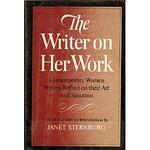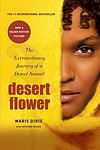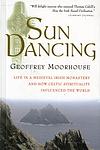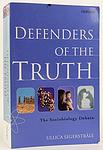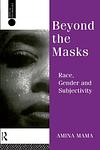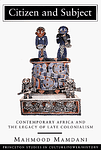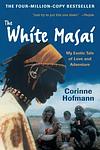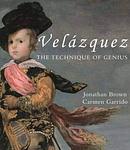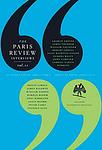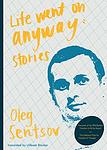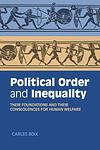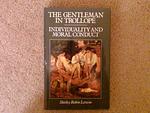The Greatest Unknown, Swiss "Nonfiction" Books Since 1980
Click to learn how this list is calculated.
This list represents a comprehensive and trusted collection of the greatest books. Developed through a specialized algorithm, it brings together 300 'best of' book lists to form a definitive guide to the world's most acclaimed books. For those interested in how these books are chosen, additional details can be found on the rankings page.
Genres
Countries
Date Range
Reading Statistics
Click the button below to see how many of these books you've read!
Download
If you're interested in downloading this list as a CSV file for use in a spreadsheet application, you can easily do so by clicking the button below. Please note that to ensure a manageable file size and faster download, the CSV will include details for only the first 500 books.
Download-
1. The Writer on Her Work by Janet Sternburg
"The Writer on Her Work" is a collection of essays by various female authors who discuss their experiences, challenges, and perspectives on writing. The book explores the complexities of being a woman in the literary world, shedding light on topics such as gender bias, the struggle for recognition, and the balance between personal life and professional aspirations. It provides a unique insight into the creative process, revealing how these women navigate their craft amidst societal expectations and personal obstacles.
-
2. Grid Systems In Graphic Design by Josef Müller-Brockmann
This book is a seminal guide to graphic design and typographic composition, focusing on the use of grid systems as a foundational tool for ensuring visual coherence and hierarchy across various design projects. It provides designers with a methodical approach to organizing text and images in a clean, logical, and aesthetically pleasing manner. Through systematic arrangement, the grid serves as an essential framework that can be applied to a wide range of design work, from print media to digital interfaces. The book delves into the principles, applications, and benefits of grid systems, offering practical advice, examples, and clear illustrations to help designers harness the power of grids to create effective, impactful visual communications.
-
3. E=Mc2 by David Bodanis
The book provides a layperson-friendly explanation of the world's most famous equation, delving into the history, science, and people behind its development. It explores the biographies of the scientists who contributed to our understanding of energy and mass, including the equation's originator, and the practical and philosophical implications of the equation's assertion that energy and mass are interchangeable. The narrative also discusses the equation's role in the development of atomic energy and its impact on modern physics, offering an accessible journey through the annals of scientific thought and the revolutionizing discoveries that shape our understanding of the universe.
-
4. An Imagined World by June Goodfield
"An Imagined World" is a poignant exploration of the human condition, set against the backdrop of World War II. The narrative delves into the life of a young woman who, amidst the chaos and destruction of the war, finds herself in a remote English village. There, she grapples with the complexities of love, loss, and the search for personal identity. As she interacts with the villagers and refugees who have also sought sanctuary, the protagonist confronts the harsh realities of the world outside while navigating the intricate web of human relationships and the enduring hope for a better future. The book is a testament to the resilience of the human spirit and the power of imagination as a source of comfort and escape in times of turmoil.
-
5. The Samaritan Treasure by Marianne Luban
"The Samaritan Treasure" is an intriguing historical novel that delves into the ancient world, weaving a tale of mystery and adventure around the biblical account of the Good Samaritan. The narrative follows an archaeologist who stumbles upon a clue to the legendary treasure of the Samaritans, leading to a thrilling quest that spans continents and centuries. As the protagonist deciphers ancient texts and navigates dangerous liaisons, the story explores themes of faith, cultural heritage, and the enduring allure of hidden riches. The novel is a blend of meticulous historical research and imaginative storytelling, offering readers a captivating journey through time and the human spirit's quest for discovery.
-
6. Desert Flower by Waris Dirie, Cathleen Miller
"Desert Flower" is a powerful autobiography that tells the story of a girl born into a nomadic tribe in the Somali desert. The girl, subjected to the brutal tradition of female genital mutilation at a young age, escapes an arranged marriage at 13 and ends up in London, where she works various jobs before being discovered as a model. Her rise to fame in the fashion industry is juxtaposed with her personal journey to raise awareness about the harmful cultural practice she endured and advocate for its eradication.
-
7. The Man Who Loved Only Numbers by Paul Hoffman
"The Man Who Loved Only Numbers" is a captivating biography that delves into the life of a brilliant mathematician. From his early years as a child prodigy to his groundbreaking contributions in number theory, the book explores the eccentricities and obsessions that consumed his life. With a unique blend of mathematical concepts and personal anecdotes, the biography paints a vivid portrait of a man who was truly devoted to the world of numbers.
-
8. Sun Dancing by Geoffrey Moorhouse
"Sun Dancing" presents a vivid tapestry of medieval Irish monasticism, combining historical facts with imaginative storytelling. The book delves into the austere and spiritually intense lives of monks on Skellig Michael, a remote island off the Irish coast, during the early centuries of Christianity in Ireland. Through a blend of narrative and analysis, the text explores the harsh realities of monastic life, the cultural and religious contributions of these communities, and the broader context of Irish and European history during this period. The author weaves together the daily routines, spiritual practices, and legendary tales of these monks, providing a window into a world where faith and endurance converge amidst the isolation of the Atlantic Ocean.
-
9. Why Not Me? by Wendy L. Bovard
"Why Not Me?" is a poignant memoir that delves into the author's personal journey through adversity and resilience. It explores the challenges faced when life takes unexpected turns, such as dealing with illness, loss, and the search for self-identity. The narrative is a testament to the human spirit's capacity to overcome obstacles and find meaning in the face of hardship. With honesty and vulnerability, the author shares her experiences, offering insights and inspiration to others who may be navigating their own paths through difficult times, ultimately asking the universal question of why some are chosen to endure certain trials and how they can emerge stronger.
-
10. Defenders Of The Truth by Ullica Segerstrale
This book provides a comprehensive examination of the sociobiology debate, a contentious discussion that emerged in the 1970s and 1980s regarding the application of evolutionary theory to human behavior. It delves into the intellectual clash between prominent scientists and scholars, exploring the ideological, academic, and political tensions that fueled the debate. The narrative not only charts the historical development and key arguments of both sides but also scrutinizes the broader implications of this debate for the scientific community and society at large. Through detailed analysis and interviews, the work sheds light on the complexities of scientific discourse, the role of science in society, and the intricate interplay between scientific inquiry and ethical considerations.
-
11. Beyond The Mask, Race, Gender And Identity by Amina Mama
In this thought-provoking book, the author delves into the complex intersections of race, gender, and identity. Through a combination of personal narratives, historical analysis, and social theory, Mama explores how these constructs shape and influence our lives. She challenges conventional ideas and offers a critical examination of power dynamics, highlighting the ways in which race and gender intersect to create unique experiences and oppressions. With a focus on African women's experiences, Mama calls for a reimagining of identity that goes beyond simplistic categorizations, and instead embraces the complexity and fluidity of human existence.
-
12. Citizen And Subject by Mahmood Mamdani
"Citizen and Subject" explores the complex relationship between citizenship and identity in postcolonial Africa. The author critically examines the concept of citizenship as a tool for exclusion and domination, particularly in the context of colonial and postcolonial states. Through a comprehensive analysis of case studies from Uganda and South Africa, Mamdani delves into the historical processes that have shaped the formation of citizenship and subjecthood, shedding light on the enduring legacies of colonialism and the challenges faced by marginalized groups in attaining full citizenship rights.
-
13. Realism And Truth by Michael Devitt
In "Realism and Truth," the author presents a detailed defense of scientific realism by arguing that the world described by science is largely independent of our thoughts or linguistic practices. The book critically examines the anti-realist position, which suggests that our knowledge, scientific theories, or truths are in some way dependent on human minds or cultural constructs. Through rigorous argumentation, the author supports the idea that truths, particularly scientific truths, are objective and that the role of language is to describe and reflect these truths rather than to construct them. The work challenges various forms of skepticism and idealism, reinforcing the notion that our perceptions and scientific findings correspond to a real, external world.
-
14. Kiswahili, Past, Present And Future Horizons by Rocha Chimera
"Kiswahili, Past, Present And Future Horizons" explores the rich history, current state, and potential future of the Kiswahili language. The book delves into the origins and development of Kiswahili, highlighting its significance as a lingua franca in East Africa. It examines the language's role in literature, education, and communication, while also addressing the challenges and opportunities it faces in a rapidly changing global landscape. Through insightful analysis and compelling examples, the author presents a comprehensive overview of Kiswahili's past achievements and its promising prospects for continued growth and influence.
-
15. The White Masai by Corinne Hofmann
The book is a true story of a Swiss woman who, while on holiday in Kenya, falls in love with a Samburu warrior. Defying her family, friends, and cultural norms, she decides to leave her life in Switzerland behind to marry him and live in his remote village. The narrative delves into her challenging and transformative journey as she adapts to a vastly different culture, learns the local customs, and navigates the complexities of her interracial marriage and the community's expectations. Her story is one of love, resilience, and the pursuit of happiness in the face of extraordinary cultural differences.
-
16. All Fall Down by America's Tragic Encounter with Iran
"All Fall Down" explores the complex and tumultuous relationship between the United States and Iran, focusing particularly on the events leading up to and following the 1979 Iranian Revolution. The book delves into the historical, political, and social factors that contributed to the fall of the Shah, the rise of Ayatollah Khomeini, and the subsequent severing of diplomatic ties between the two nations. Through a detailed narrative, it examines the misunderstandings, missteps, and conflicts that characterized the U.S.-Iran relationship, shedding light on the broader implications for Middle Eastern politics and U.S. foreign policy.
-
17. Velazquez by Jonathan Brown
This book provides a comprehensive analysis of Diego Velázquez, one of the foremost figures of the Spanish Golden Age of painting. The author delves into Velázquez's life, exploring his rise from a young Sevillian artist to becoming the leading painter at the court of King Philip IV, and ultimately his influence on the development of Western art. Through detailed examination of his major works, the book highlights Velázquez's mastery of technique, his innovative use of light and shadow, and his ability to convey complex human emotions, which positioned him as a pivotal artist who transformed the genre of portraiture and had a lasting impact on European art.
-
18. Zoology by Sheridan Keith
"Zoology" is a comprehensive guide that explores the diverse world of animals, their behavior, and their habitats. From microscopic organisms to large mammals, the book presents a detailed overview of various animal species, their evolutionary history, and their ecological roles. With captivating illustrations and accessible language, the author delves into the fascinating aspects of animal anatomy, physiology, and adaptation, shedding light on the intricacies of the animal kingdom. Whether you are a student, a nature enthusiast, or simply curious about the natural world, "Zoology" offers an engaging and informative journey through the wonders of the animal realm.
-
19. The Cult Of Emptiness The Western Discovery Of Buddhist Thought And The Invention Of Oriental Philosophy by Urs App
This book delves into the fascinating journey of how Buddhist thought was introduced and interpreted in the West, tracing the origins back to the encounters between European intellectuals and Asian cultures. It explores the notion of "Oriental Philosophy" as a construct of Western imagination, shaped by the translations and interpretations of texts that were often misunderstood or taken out of context. The author critically examines the romanticization and misconceptions that led to the creation of a mystical and exotic Eastern philosophy, highlighting the impact of these interpretations on both Western perceptions of Buddhism and the development of modern philosophy. Through a meticulous historical analysis, the book reveals the complex dynamics of cultural exchange, intellectual curiosity, and the quest for spiritual understanding, shedding light on the enduring fascination with the concept of emptiness and the cultural constructs that have emerged around it.
-
20. An Immense World by Ed Yong
"An Immense World" is a collection of science essays written by Ed Yong, a science journalist. The book explores a wide range of scientific topics, from the behavior of animals to the complexities of the human microbiome. Yong's writing is accessible and engaging, making complex scientific concepts easy to understand for readers of all backgrounds. The essays are thought-provoking and provide a glimpse into the fascinating world of science. Overall, "An Immense World" is a must-read for anyone interested in science and the natural world.
-
21. Global Health by Ann Lindstrand
This book provides a comprehensive overview of global health, addressing the key issues, challenges, and strategies involved in improving health outcomes worldwide. It delves into the determinants of health, the burden of diseases, and the complex interplay between health, economic development, and social factors. The text emphasizes the importance of a multidisciplinary approach, incorporating perspectives from epidemiology, public policy, and international relations, to tackle the global health disparities and pave the way towards achieving equity in health for all populations. Through case studies and analysis of current trends, the book offers insights into the roles of various stakeholders, including governments, NGOs, and the private sector, in advancing public health goals on a global scale.
-
22. The Paris Review Interviews by Paris Review
The book is a collection of in-depth, personal interviews with some of the greatest literary minds of the 20th century. It provides a unique insight into their creative processes, inspirations, and struggles. The discussions delve into their thoughts on the craft of writing, their individual approaches to storytelling, and the personal experiences that have shaped their works. This book is a valuable resource for aspiring writers and literature enthusiasts alike.
-
23. Life Went On Anyway by Oleg Sentsov
"Life Went On Anyway" is a powerful memoir that chronicles the life of Oleg Sentsov, a Ukrainian filmmaker who was wrongfully imprisoned by the Russian government. Through his vivid and poignant storytelling, Sentsov shares the harrowing details of his arrest, imprisonment, and the relentless fight for justice. Despite the unimaginable hardships he endures, Sentsov's resilient spirit shines through as he reflects on the power of art, the importance of freedom, and the indomitable human will to survive.
-
24. Political Order And Inequality by Carles Boix
This book delves into the intricate relationship between political dynamics and social inequalities, offering a comprehensive analysis of how political institutions shape economic disparities and vice versa. The author argues that the formation of political order and the distribution of resources within a society are deeply interconnected processes, influenced by historical events, economic pressures, and power struggles. Through a detailed examination of various political systems and historical contexts, the book presents a theoretical framework for understanding the mechanisms through which political stability and inequality are mutually reinforced, suggesting that the path to a more equitable society lies in the careful restructuring of political institutions to address the root causes of inequality.
-
25. The Gentleman In Trollope by Shirley Robin Letwin
"The Gentleman In Trollope" explores the nuanced portrayal of gentlemen in the novels of Victorian author Anthony Trollope, examining how his characters embody and challenge the ideals of gentlemanliness prevalent in 19th-century English society. Shirley Robin Letwin delves into Trollope's exploration of moral and ethical dilemmas faced by his characters, using it as a lens to discuss broader social and cultural values of the time. The book critically assesses how Trollope's gentlemen navigate issues of integrity, professional duty, and personal relationships, reflecting the complexities of maintaining gentlemanly conduct in a changing social landscape.
Reading Statistics
Click the button below to see how many of these books you've read!
Download
If you're interested in downloading this list as a CSV file for use in a spreadsheet application, you can easily do so by clicking the button below. Please note that to ensure a manageable file size and faster download, the CSV will include details for only the first 500 books.
Download